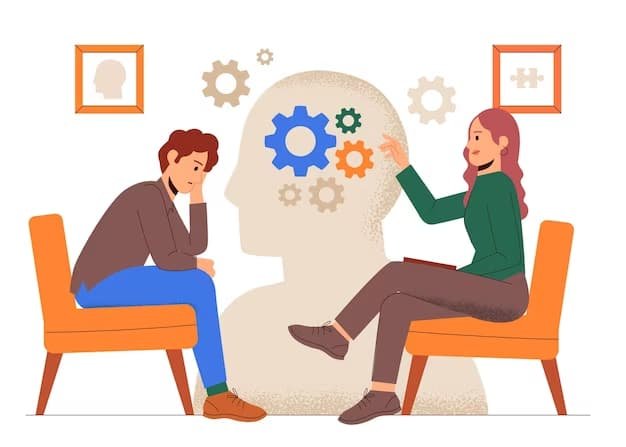In the complex tapestry of human existence, the challenges we face, both external and internal, can be daunting. These challenges can manifest in a myriad of ways, impacting our mental and emotional well-being. For many individuals, seeking help from a psychologist through counseling is not a sign of weakness but an empowering step toward personal growth and well-being. In this comprehensive exploration, we will delve into the profound significance of psychologist’s counseling, uncovering the reasons why it matters immensely in today’s world.
Understanding the Role of Psychologists
Before we embark on our journey into the realm of counselling, it’s essential to grasp the role of psychologists. Psychologists are trained professionals specializing in the study of the mind and human behavior. They utilize their expertise to assist individuals in understanding and addressing a wide range of psychological and emotional issues.
Psychologists employ various therapeutic techniques to help individuals navigate challenges, cope with stressors, and improve their mental health. Among these techniques, counselling stands out as a cornerstone of psychological support.
The Essence of Counselling

Counselling is a collaborative and therapeutic process where a psychologist works closely with an individual to explore their thoughts, feelings, and behaviors. It provides a safe and confidential space for individuals to express themselves, reflect on their experiences, and gain insights into their lives.
The essence of counselling extends beyond mere problem-solving. It fosters self-awareness, self-acceptance, and personal growth. By delving into one’s thoughts and emotions with the guidance of a skilled psychologist, individuals can develop coping strategies, manage challenges, and work towards a happier and more fulfilling life.
Why Psychologist’s Counselling Matters
Now, let’s unravel the profound reasons why psychologist’s counselling matters in our modern world:
1. Addressing Mental Health Concerns
In today’s fast-paced and often stressful society, mental health issues are on the rise. Depression, anxiety, and other mental health disorders can profoundly affect an individual’s quality of life. Psychologist’s counselling provides a lifeline for those grappling with these challenges, offering a path to healing and recovery.
2. Coping with Life Transitions
Life is a series of transitions, some joyous, while others can be overwhelming. From starting a new job to dealing with the loss of a loved one, these transitions can trigger a range of emotions. Counselling provides valuable support during these times, helping individuals navigate change and adapt more effectively.
3. Building Resilience
Resilience is the ability to bounce back from adversity. Psychologist’s counselling equips individuals with the tools to build resilience, helping them weather life’s storms with greater strength and adaptability.
4. Enhancing Self-Understanding
Self-awareness is a cornerstone of personal growth. Counselling encourages individuals to explore their thoughts, emotions, and behaviors, fostering a deeper understanding of themselves. This self-awareness can lead to positive changes in relationships, decision-making, and overall life satisfaction.
5. Improving Relationships
Healthy relationships are vital to our well-being. Counselling can be invaluable in addressing relationship issues, whether in couples counselling or individual therapy. It provides a platform for open communication, conflict resolution, and the development of healthier relational patterns.
6. Managing Stress and Anxiety
Stress and anxiety are prevalent in our modern world. Counselling offers effective stress management techniques and anxiety-reduction strategies. It helps individuals regain a sense of control over their lives and find peace amidst chaos.
7. Overcoming Trauma
Trauma can have lasting effects on mental health. Psychologist’s counselling, particularly trauma-focused therapy, assists individuals in processing and healing from traumatic experiences, allowing them to reclaim their lives.
8. Promoting Personal Growth
Counselling is not solely about addressing problems; it’s also a powerful tool for personal growth and self-improvement. It empowers individuals to set goals, overcome obstacles, and reach their full potential.
9. Providing a Safe and Non-Judgmental Space
The counselling room is a sanctuary of trust and confidentiality. It offers individuals a safe, non-judgmental space to express their thoughts and feelings without fear of criticism or rejection.
10. Destigmatizing Mental Health
Seeking counselling services helps destigmatize mental health issues. It reinforces the idea that seeking help for emotional and psychological challenges is a sign of strength and self-care, rather than weakness.
The Therapeutic Process: What to Expect

While the journey of counselling is deeply personal and unique to each individual, there are common elements to the therapeutic process:
1. Initial Assessment
The first session often involves an initial assessment, where the psychologist gathers information about the individual’s concerns, history, and goals for counselling. It’s also an opportunity for the individual to ask questions and establish a rapport with the psychologist.
2. Goal Setting
Together, the psychologist and individual set specific goals for counselling. These goals serve as a roadmap for the therapeutic journey, providing a clear sense of direction.
3. Exploration and Reflection
Subsequent sessions involve in-depth exploration and reflection on the individual’s thoughts, emotions, and behaviors. Psychologists use various therapeutic approaches tailored to the individual’s needs.
4. Skill Building and Coping Strategies
Counselling often includes skill-building exercises and the development of coping strategies to address the individual’s concerns effectively.
5. Progress Monitoring
Throughout the counselling process, progress is regularly monitored and adjustments are made as needed. It’s a dynamic and collaborative journey towards personal growth and well-being.
6. Closure and Reflection
As counselling sessions come to a close, individuals have the opportunity to reflect on their progress and the insights gained. Closure sessions often involve discussing strategies for maintaining positive changes in the future.
If you want a counselling you can visit our clinic .. Check Here
The Myths and Realities of Counselling
As we explore the significance of psychologist’s counselling, it’s essential to dispel some common myths surrounding therapy:
Myth: Only “Serious” Problems Require Counselling
Reality: Counselling is not solely for severe mental health issues. It is a valuable resource for anyone seeking personal growth, self-improvement, or support during life’s challenges, big or small.
Myth: Counselling is Only for “Crazy” People
Reality: Seeking counselling is a sign of self-awareness and a desire for personal growth. It is not an indicator of mental illness or “craziness.”
Myth: Counsellors Have All the Answers
Reality: Counsellors are skilled professionals who provide guidance and support, but they do not have all the answers. Counselling is a collaborative process that empowers individuals to discover their own insights and solutions.
Myth: Counselling is Only About Talking
Reality: While talking is a fundamental aspect of counselling, it may also involve various therapeutic techniques, exercises, and skill-building activities tailored to the individual’s needs.
Myth: Counselling is a Quick Fix
Reality: Counselling is a process that takes time and effort. Positive change often requires commitment
